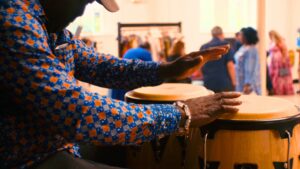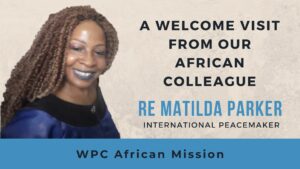My paternal grandmother believed that guns should not be toys and toy guns were not to be given to her grandsons. Such was her force of will that from Ohio, she compelled my parents in New York to follow that rule. So, in a time when every young boy was playing cowboys and Indians, I was forever an Indian. She came to watch us boys while my parents traveled. In that time I had an appointment for my first dental filling. She said, “I promise that if you don’t cry, I will buy you anything you want at the toy store afterwards.” I believe I was silent from the time we got into the car until we were at the toy store afterwards. I marched up to the Roy Rogers cap gun set in the plastic leather look holster. “I want that.” “Billy, you know I don’t believe in guns as toys.” “But grandmother, you promised. And you say people should always keep promises.” I got the cap gun set. Caught in a collision between two of her values, grandmother decided that keeping one’s word was a more important life lesson than not allowing a cap gun. But she made me promise never to treat a real gun as a toy or pretend to kill someone. Collision between values can also happen to churches. And the way we resolve such a collision reveals what is really most important to us. Westminster won’t be caught between the value of keeping promises versus the value of not treating guns as toys. But there are church values that will collide or compete The value of rich diversity and radical hospitality is part of the spiritual fabric that is woven together here at Westminster. We value worship and the traditions that support it, and that too is part of the spiritual fabric you have woven together. Being hospitable to newcomers means sensitivity to what makes them feel comfortable and included. When I’ve been invited to dinner, I’ve been asked if there’s something I especially liked or disliked or couldn’t eat. The hosts made efforts to make me feel at home and welcome. They were ready to make changes to their eating habits for the sake of hospitality. The same principle holds true for churches. To best welcome all, a church must plan in advance to prepare things that make people feel comfortable and welcome. And a church always needs to look at long held traditions and ask if being hospitable means adjusting traditional expectations. Westminster’s core beliefs can help balance competing values. Among those beliefs listed on the church website is: “We believe that God calls us to develop ourselves spiritually by living out our Christian faith in community.” How do we enact radical hospitality so we can bring diverse people from diverse backgrounds together? What parts of our traditions or habits might unintentionally work against truly being woven together in radical hospitality? These are questions that in one form or another were raised in the April 29th table discussions after church. They are questions that your Christian Life and Learning Committee has been wrestling with. You can read one result of these discussions in the article in the Messenger about the Festival of Faith, A Reformation Celebration. Maintaining a healthy and dynamic polarity between values will foster creativity and energy in a church. As Westminster lives into God’s future, as you eventually add the perspective and skills of a new pastor, you will inevitably find times when values conflict. Let’s commit to continue figuring out what is most important for the future life and health of the church, while building on strengths of the past. For instance: Be sure to fill in the upcoming CAT survey; Ask yourself the same questions listed above; Watch for word of congregational discussions to explain the CAT results; Say yes if asked to help at the Festival of Faith October 28; Take time to find out more information before you react to an idea or change; Pray for the church; Pray for the leaders in the church; and Be prepared to follow where Christ calls. Peace, Rev. Bill Rev. Bill Schram began his ministry with Westminster in March and is the current Interim Minister. Bill attended McCormick seminary in Chicago and met his wife Jenny there. They have served as co-pastors and in separate positions. He has served churches in urban, near suburb, small town, county seat towns in various positions such as pastor, associate pastor, interim pastor, and hospital chaplain. He and Jenny have two natural and one foster daughter. Delightfully, they now have a granddaughter to enjoy.




